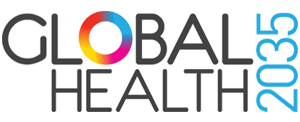September 21, 2015
As global leaders prepare to finalize bold Sustainable Development Goals, economists from 44 countries declare that investments in health are right, smart and affordable
Signatories calling for universal health coverage include Lawrence H. Summers, Joseph E. Stiglitz, Thomas Piketty, current and former World Bank chief economists, 5 Nobel Laureates
Press Release—New York, 18 September 2015—A global coalition of 267 economists representing 44 countries is calling on policymakers to prioritize universal health coverage as an essential pillar of economic development. The Economists' Declaration on Universal Health Coverage, published today in The Lancet, was convened by The Rockefeller Foundation and led by Lawrence H. Summers, Charles W. Eliot University Professor and President Emeritus at Harvard University.
Signatories include Nobel Laureates Joseph E. Stiglitz, Kenneth Arrow, Alvin Roth, Vernon L. Smith and Christopher Pissarides; the current and former chief economists of the World Bank, Kaushik Basu and Justin Yifu Lin; noted health economists Anne Mills and Victor Fuchs; and renowned economic thinkers Thomas Piketty, Linah K. Mohohlo, Bjørn Lomborg, Tony Atkinson, John Irons and Paul Collier. Economists on every continent are supporting the Declaration.
Launched as global leaders prepare to enact the Sustainable Development Goals – an ambitious agenda for the next 15 years that includes universal health coverage among its targets – the Economists' Declaration proclaims that ensuring everyone can obtain high quality essential health services without suffering financial hardship is right, smart and affordable.
"Universal health coverage isn't only the right thing to do – it's also the economically smart thing to do," said Lawrence H. Summers. "The data clearly show that health is essential to eradicating extreme poverty and promoting economic growth. I launched this Declaration to urge world leaders to act on that evidence."
The Declaration cites the considerable evidence supporting the signatories' assertion that all countries have the opportunity to achieve universal health coverage and should prioritize reforms and investments toward it.
- A Historic Opportunity: With the right investments to increase availability of today's health tools and discover, develop and deliver new interventions, the world has an unprecedented opportunity to dramatically reduce preventable maternal, child and infectious disease deaths and achieve a "grand convergence" in health across the world's population by 2035.
- Cost of Health: 150 million people fall into poverty every year paying for health. The 100+ countries already taking steps toward universal health coverage are demonstrating that it protects families from this risk, fostering more cohesive societies and more productive economies.
- Driving Economic Growth: In the past decade, health improvements were responsible for nearly a quarter of full income growth in low- and middle-income countries. It is estimated that the economic benefits of investing in basic health care will be 10 times greater than the costs.
- Building Resilience: Universal health coverage lessens the impact of shocks on communities. The debilitating effects of Ebola could have been mitigated by building up public health systems in Guinea, Liberia and Sierra Leone at one third the cost of the Ebola response so far.
"With nearly half the world's population now living in a country advancing toward universal health coverage, the case for UHC is strong and growing stronger, but there is still work to be done to ensure more equitable access to lifesaving services for even the poorest and most vulnerable people," said Judith Rodin, President of The Rockefeller Foundation. "The Rockefeller Foundation convened this Declaration by the world's leading economists to demonstrate the financial benefits and feasibility of UHC—and with their resounding support, it is now time to invest the resources needed to make health for all a reality."
"We are at a juncture of history where the world can afford basic health coverage for all," said Kaushik Basu, Senior Vice President and Chief Economist of the World Bank. "Given economic growth, donor country commitments and new mechanisms to raise local funds, countries, no matter at what stage of development, can provide universal health coverage."
More than 100 countries across the development spectrum have begun working toward universal health coverage, increasingly demonstrating its feasibility. The Economists' Declaration calls for increased domestic funding, donor country commitments and political leadership to advance pro-poor reforms toward universal health coverage.
"Healthy people are the engine of a country's economic growth. Universal health coverage ensures that engine is constantly fueled," said Linah K. Mohohlo, the Governor of the Bank of Botswana. "Our ability to build the planet we deserve depends on governments and global leaders stepping up to deliver on the promise of health for all people."
"As the gap between rich and poor keeps growing, we must prioritize policies that work to counter inequality," said Joseph E. Stiglitz, University Professor at Columbia University. "Universal health coverage does just that, ensuring everyone has access to health care, without which they cannot succeed, and strengthening economies as a result."
The full text of the Economists' Declaration and complete list of signatories are published in the The Lancet and at healthforall.org/economists-declaration. The Declaration builds on the Lancet Commission on Investing in Health, which concluded in their 2013 report, Global Health 2035, that if the right health investments are made today, developing countries will see dramatic health and economic gains within a generation.
